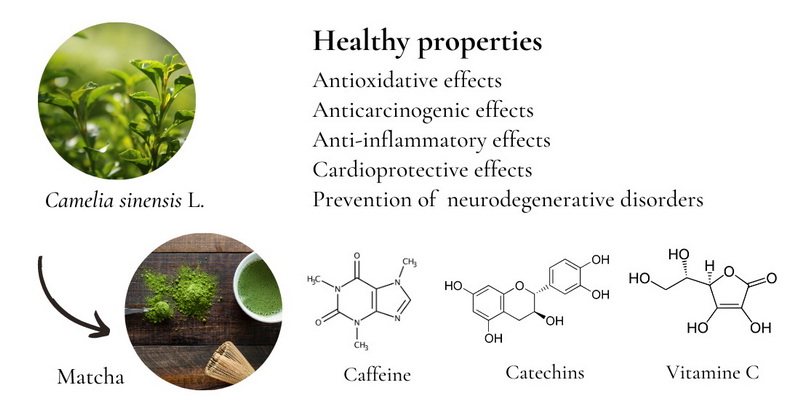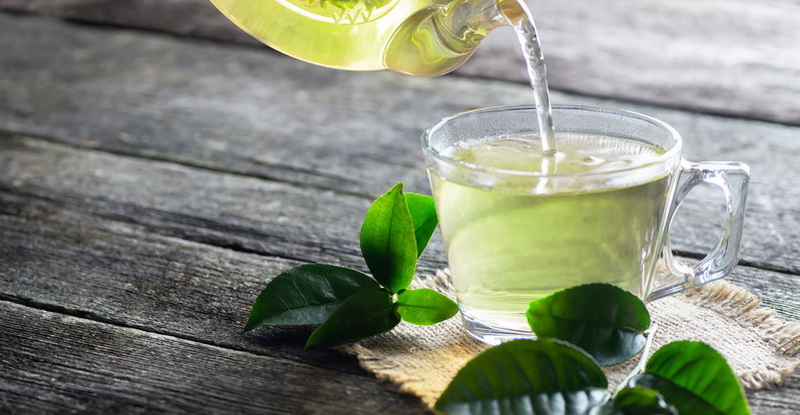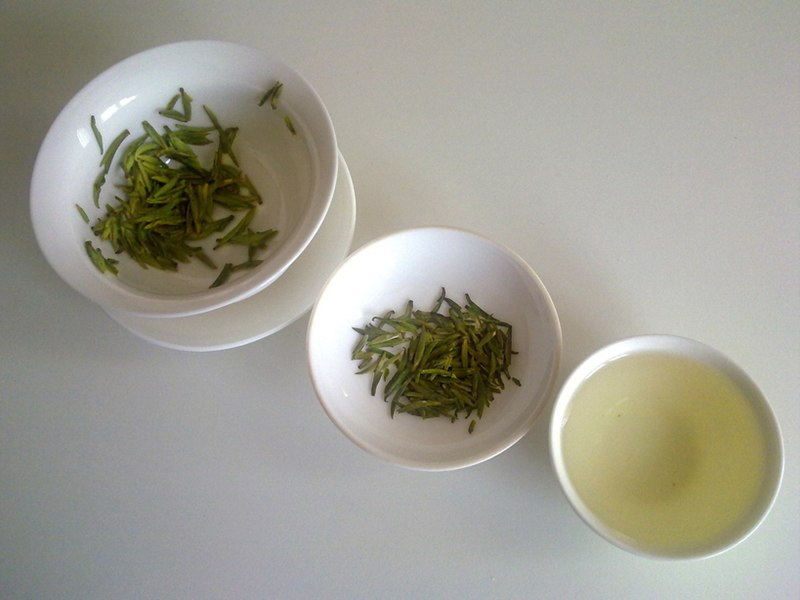Content Menu
● Understanding Green Tea Extract
● Caffeine Content in Green Tea Extract
● Benefits of Combining Green Tea Extract with Caffeine
>> Additional Benefits
● Risks and Side Effects
● Recommendations for Safe Consumption
● How Much Green Tea Extract Should You Take?
● Conclusion
● FAQ
>> 1. Is it safe to take green tea extract with caffeine?
>> 2. How much caffeine is typically found in green tea extract?
>> 3. Can I take green tea extract if I am on medication?
>> 4. What are the side effects of taking too much green tea extract?
>> 5. Does combining green tea extract with caffeine enhance weight loss?
● Citations:
Green tea has long been celebrated for its numerous health benefits, from boosting metabolism to enhancing mental clarity. As a concentrated form of green tea, green tea extract offers these benefits in a more potent package. However, many people wonder about the implications of combining green tea extract with caffeine. This article will explore the relationship between green tea extract and caffeine, their combined effects, potential benefits, risks, and recommendations for safe consumption.

Understanding Green Tea Extract
Green tea extract is derived from the leaves of the *Camellia sinensis* plant and is rich in antioxidants known as catechins, particularly epigallocatechin gallate (EGCG). These compounds are believed to contribute to various health benefits, including:
- Weight loss support
- Improved heart health
- Enhanced brain function
- Anti-inflammatory properties
Green tea extract can be found in various forms, including capsules, powders, and liquids. The caffeine content in these extracts can vary widely depending on the brand and formulation.
Caffeine Content in Green Tea Extract
The caffeine content in green tea extract typically ranges from 15 mg to over 200 mg per serving. For comparison:
- A standard cup of brewed green tea contains approximately 25-50 mg of caffeine.
- A cup of coffee contains about 95-200 mg of caffeine.
This variability means that some green tea extracts may provide a significant caffeine boost, while others may contain minimal amounts or even be caffeine-free. It's essential to check the label for specific caffeine content.

Benefits of Combining Green Tea Extract with Caffeine
Combining green tea extract with caffeine can enhance certain effects due to their synergistic properties. Some potential benefits include:
- Increased Metabolism: Both caffeine and EGCG have been shown to boost metabolic rates, which may aid in weight loss efforts. Studies suggest that this combination can enhance thermogenesis, leading to increased calorie burning throughout the day[2].
- Enhanced Physical Performance: Caffeine is known for its ability to improve athletic performance by increasing endurance and reducing perceived exertion. When combined with the antioxidant properties of green tea extract, it may provide an extra edge during workouts[1][13].
- Improved Mental Focus: Caffeine acts as a stimulant that can enhance alertness and concentration. The calming effects of L-theanine found in green tea may help balance this stimulation, leading to improved focus without jitters. This combination has been shown to improve cognitive performance in various studies[2].
Additional Benefits
The combination of green tea extract and caffeine has also been linked to several other health benefits:
- Weight Loss: Research indicates that this combination may assist in weight management efforts by promoting fat oxidation and improving insulin sensitivity[5][6]. One study found that participants taking a combination of caffeine and EGCG burned significantly more calories over a 24-hour period compared to those taking a placebo[2].
- Antioxidant Effects: The antioxidants present in both green tea extract and caffeine work together to combat oxidative stress in the body, potentially reducing the risk of chronic diseases such as heart disease and cancer[4][12].
Risks and Side Effects
While there are potential benefits to combining green tea extract with caffeine, there are also risks to consider:
- Caffeine Sensitivity: Individuals sensitive to caffeine may experience side effects such as anxiety, jitteriness, insomnia, or increased heart rate when consuming high doses. These effects are more pronounced when combining multiple sources of caffeine[1][7].
- Liver Health Concerns: High doses of green tea extract have been associated with liver toxicity in some cases. Symptoms can include yellowing of your skin or the whites of your eyes, nausea, and stomach pain. It is crucial to adhere to recommended dosages (generally between 250-500 mg per day) to minimize risks[1][4].
- Drug Interactions: Green tea extract can interact with certain medications, including blood thinners and medications for anxiety or depression. Always consult a healthcare provider before combining supplements with prescribed medications[6][10].
Recommendations for Safe Consumption
To safely incorporate both green tea extract and caffeine into your routine:
1. Start Low: If you are new to either supplement, begin with lower doses to assess your tolerance.
2. Read Labels: Check the caffeine content on supplement labels and consider your total daily intake from all sources (coffee, energy drinks, etc.).
3. Consult a Healthcare Professional: Especially if you have underlying health conditions or are taking medications that could interact with these substances.
4. Monitor Your Body's Response: Pay attention to how your body reacts when taking both substances together. Adjust dosages accordingly based on your comfort level.
5. Stay Hydrated: Caffeine can have diuretic effects; ensure you drink plenty of water throughout the day.
How Much Green Tea Extract Should You Take?
The appropriate dosage of green tea extract can vary based on individual health goals and tolerance levels. Most studies suggest a range between 250 mg and 500 mg per day for general health benefits. However, higher doses (up to 800 mg) have been used in studies focused on weight loss or metabolic improvement[6][15].
It's important not to exceed these recommended dosages without medical supervision due to potential side effects related to high catechin levels.
Conclusion
Combining green tea extract with caffeine can offer several health benefits, particularly related to metabolism and mental focus. However, it is essential to be mindful of potential side effects and interactions with medications. By understanding your body's response and adhering to recommended dosages, you can safely enjoy the advantages of both supplements.

FAQ
1. Is it safe to take green tea extract with caffeine?
Yes, it is generally safe for most people when taken within recommended dosages. However, individuals sensitive to caffeine should exercise caution.
2. How much caffeine is typically found in green tea extract?
Caffeine content can range from 15 mg to over 200 mg per serving depending on the brand and formulation.
3. Can I take green tea extract if I am on medication?
Consult your healthcare provider before combining green tea extract with any medications due to potential interactions.
4. What are the side effects of taking too much green tea extract?
Excessive intake can lead to liver toxicity and symptoms like nausea or abdominal pain. Always stick to recommended doses.
5. Does combining green tea extract with caffeine enhance weight loss?
Both compounds may help increase metabolism and fat oxidation; however, the effect is modest and should be combined with a healthy diet and exercise regimen for best results.
Citations:
[1] https://www.urmc.rochester.edu/encyclopedia/content?contenttypeid=19&contentid=greenteaextract
[2] https://www.healthline.com/nutrition/10-benefits-of-green-tea-extract
[3] https://pubmed.ncbi.nlm.nih.gov/11251015/
[4] https://www.cancerresearchuk.org/about-cancer/treatment/complementary-alternative-therapies/individual-therapies/green-tea
[5] https://pmc.ncbi.nlm.nih.gov/articles/PMC7305783/
[6] https://www.drugs.com/npp/green-tea.html
[7] https://www.medicalnewstoday.com/articles/269538
[8] https://ajcn.nutrition.org/article/S0002-9165(22)04202-2/fulltext
[9] https://www.webmd.com/vitamins/ai/ingredientmono-960/green-tea
[10] https://www.mountsinai.org/health-library/herb/green-tea
[11] https://www.mayoclinic.org/healthy-lifestyle/nutrition-and-healthy-eating/in-depth/caffeine/art-20045678
[12] https://www.nccih.nih.gov/health/green-tea
[13] https://health.clevelandclinic.org/green-tea-extract-a-better-way-to-boost-energy-or-not
[14] https://www.webmd.com/drugs/2/drug-76714/green-tea-leaf-extract-oral/details
[15] https://examine.com/supplements/green-tea-extract/
[16] https://pmc.ncbi.nlm.nih.gov/articles/PMC7922336/






























